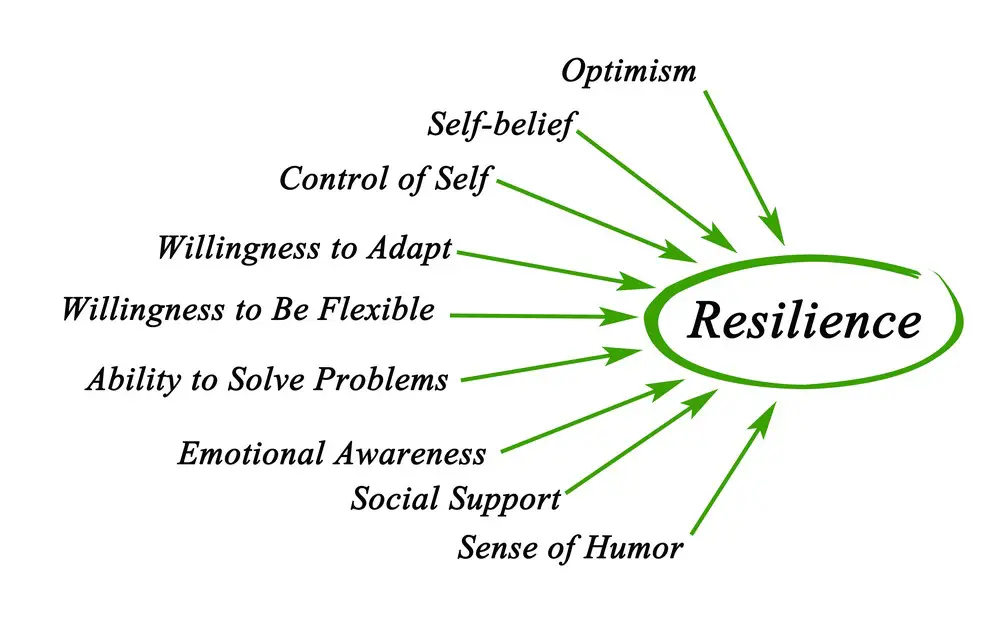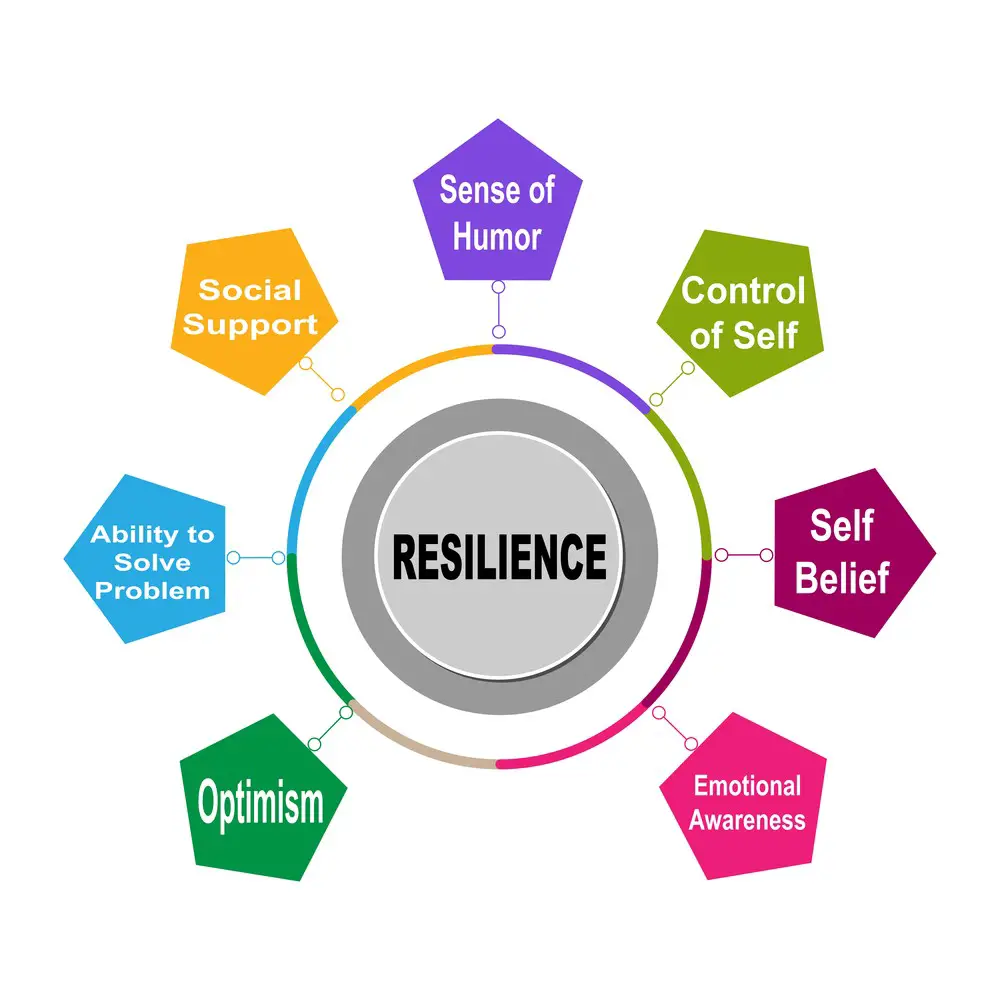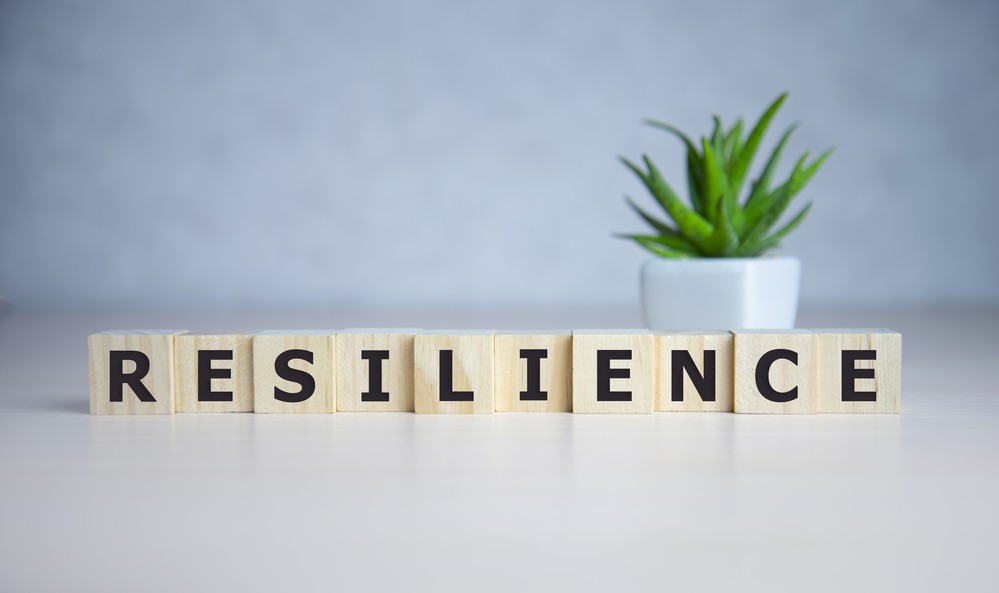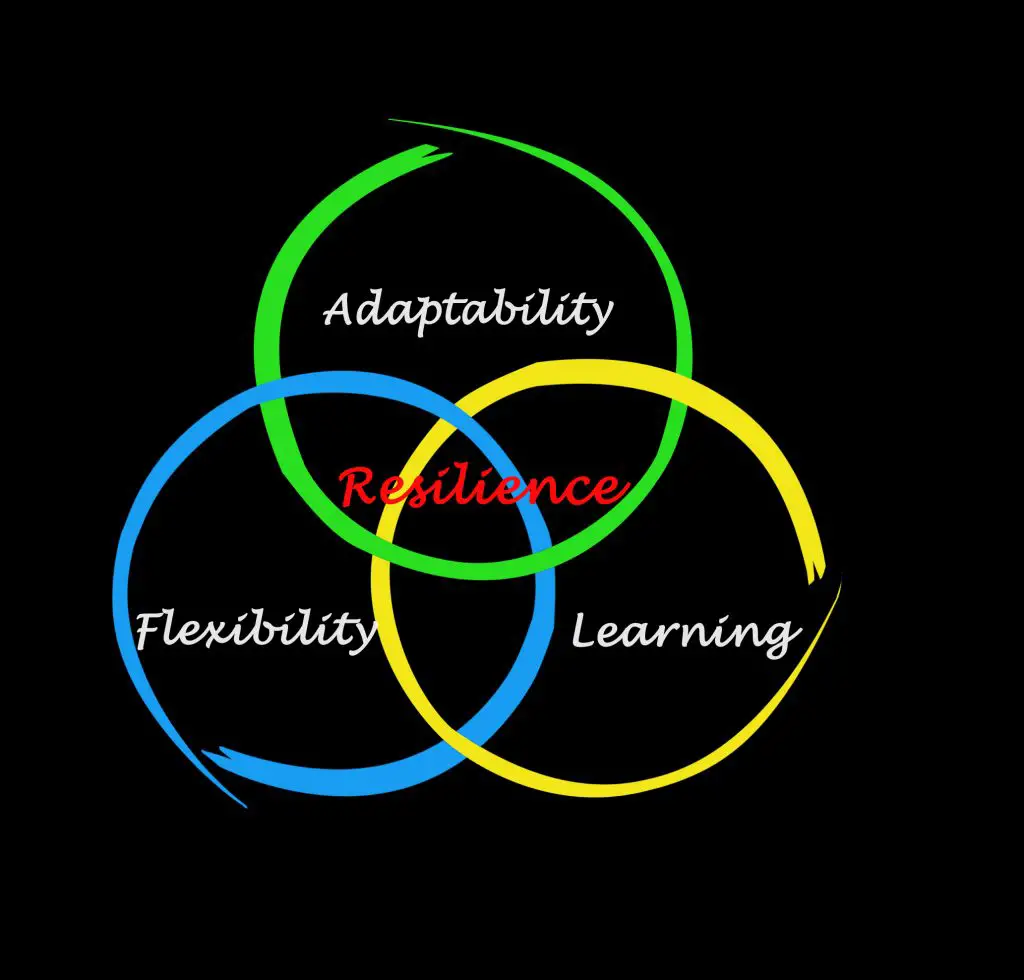Natural resilience is an inherent quality in all living organisms, allowing us to recover and adapt to adversity. This fascinating trait enables individuals to bounce back from various challenges, whether they’re physical, emotional, or environmental. Understanding natural resilience makes it possible to appreciate its value and harness its power to lead a more balanced and fulfilling life.
We often talk about human resilience in terms of the mind and body, with mental toughness and physical endurance being critical aspects of this trait. However, resilience is not just a matter of mental and physical fortitude. The environment in which we live plays a significant role in shaping our natural resilience, and how we react to trauma and adversity can influence our overall well-being.
By exploring the intricate relationship between an individual’s innate resilience and their environment, we can better understand how to foster resilience in our daily lives, leading to improved well-being and overall life satisfaction.
Key Takeaways
- Natural resilience is an inherent quality in living organisms, aiding recovery and adaptation to challenges.
- Mental toughness, physical endurance, and environmental factors all contribute to human resilience.
- Understanding and fostering resilience contributes to improved well-being and life satisfaction.
 Understanding Resilience
Understanding Resilience
Resilience is the ability to bounce back from adversity and life’s challenges. It’s your natural capacity to adapt, recover, stay positive, and find joy even in tough times. So, let’s explore what resilience means and how to strengthen it.
Firstly, it’s essential to maintain a realistic perspective on life. This means accepting that setbacks, failures, and obstacles are a part of everyone’s journey. Embrace your challenges and see them as opportunities for growth and success. Doing so will give you the courage and commitment to face difficult situations head-on.
To foster natural resilience, focus on these key strengths:
- Self-awareness: Be honest about your emotions, thoughts, and behaviors. Understand how they affect you and your reactions to various situations.
- Self-control: Manage your emotions and reactions so they don’t overwhelm you or your decision-making process.
- Adaptability: Be open to change and adjust your strategies when needed.
Here are some actionable tips to help you enhance your resilience:
- Surround yourself with supportive people who lift your spirits and encourage your growth.
- Take care of your physical and emotional well-being through exercise, healthy eating, and self-care activities.
- Set realistic goals for yourself, break them into smaller tasks, and celebrate your progress.
- Learn from past experiences and use those lessons to inform your future decisions.
- Maintain a sense of humor and embrace life’s lighter moments.
Remember, your resilience is a lifelong journey that requires patience, persistence, and a willingness to learn from your experiences. By staying proactive and investing in yourself, you’ll be better equipped to handle life’s challenges and enjoy a more fulfilling, successful journey.
-Key Takeaway: Natural resilience is about having the strength and mindset to overcome adversity by maintaining a realistic perspective, focusing on key strengths, and embracing the power of personal growth.

The Mind and Resilience
Cognitive Aspects
Your mind plays a significant role in building resilience. One crucial aspect is having a sense of control. By developing realistic plans, you can work towards achieving your goals. Improve your problem-solving skills by brainstorming ideas, breaking down complex tasks, and focusing on each step.
Key takeaway: Enhance your cognitive resilience by making realistic plans and honing your problem-solving skills.
Emotional Aspects
Emotional resilience is vital for coping with stress, depression, anxiety, and negative moods. Developing self-efficacy and effective stress management techniques can help you manage these emotions. Practice emotion regulation by identifying your feelings and finding healthy ways to process them, like journaling or meditation. Cultivate self-compassion by treating yourself with understanding and kindness, especially during difficult times. Embrace joy and allow yourself to experience grief in a balanced manner.
Key takeaway: Boost your emotional resilience by practicing self-compassion, emotion regulation, and stress management.
Social Aspects
Building resilience doesn’t have to be a solo endeavor. Your relationships and support system play a vital role in overcoming challenges. Connect with others by:
- Nurturing relationships that provide emotional support
- Developing communication skills to express your needs effectively
- Researching resources and support available in your community
- Seeking professional help when necessary, such as therapy or counseling
Key takeaway: Strengthen your social resilience by nurturing relationships, honing your communication skills, and utilizing available resources.

The Body and Resilience
We all experience stress, but how does our body cope with it? The answer lies in our body’s natural ability to bounce back, known as resilience. Your body’s resilience manifests itself through your stress response, physical resilience, and energy levels.
Your stress response is the body’s way of dealing with challenging situations. When faced with stress, your body releases hormones like adrenaline and cortisol, which increase your heart rate and energy. This is your body’s way of preparing you to take action. Some stress is to be expected nearly every day, and a healthy stress response can improve your resilience. To help manage stress effectively, try finding relaxation techniques that work best for you, like deep breathing, yoga, or mindfulness practices.
Physical resilience is another crucial aspect of your body’s ability to bounce back. This includes building and maintaining strength, flexibility, and endurance. A simple way to boost your physical resilience is by incorporating regular exercise into your routine. This can help you:
- Strengthen your muscles and bones
- Improve your balance and coordination
- Increase your endurance and stamina
Remember that it’s essential to find a form of exercise that you enjoy so that it becomes a sustainable and enjoyable part of your daily life.
Balancing your energy levels plays a significant role in maintaining your body’s natural resilience. It’s important to give your body the fuel it needs to thrive, which includes eating a balanced diet, getting enough sleep, and staying hydrated throughout the day. Here are some quick tips for supporting your energy levels:
- Consume various nutrient-dense foods, such as fruits, vegetables, whole grains, nuts, and lean proteins.
- Get around seven to nine hours of sleep each night to ensure you’re well-rested and ready to tackle the day.
- Drink plenty of water to stay hydrated, especially before, during, and after exercising.
Key Takeaway: Your body’s natural resilience is demonstrated through your stress response, physical resilience, and energy balance. To support these, find relaxation techniques that work for you, incorporate regular exercise into your routine, and focus on maintaining a balanced diet, proper sleep, and good hydration. By nurturing these areas, you can help your body better adapt to life’s challenges and build resilience.

Natural Resilience vs. Adaptive Resilience
Natural resilience is your innate ability to bounce back from challenges and setbacks. You may not even realize it, but like a rubber band, you can stretch and adapt to the world. Meanwhile, adaptive resilience refers to the skills, strategies, and coping mechanisms you learn to develop and maintain balance in the face of change.
Though you may start with a foundation of natural resilience, life often throws curveballs your way. It’s essential to recognize that you can still adapt and grow even if you feel knocked down. Embracing change means acknowledging that life is full of ups and downs, but staying resilient will make navigating difficult times easier.
To enhance your adaptive resilience, consider these tips:
- Seek support: Surround yourself with people who genuinely care about you and who want to see you succeed. They can provide encouragement and a fresh perspective when you need it most.
- Practice self-awareness: Reflect on what makes you resilient and what areas could use improvement. Constant self-evaluation can be a powerful tool for personal growth.
- Focus on the positive: It’s tempting to dwell on your setbacks, but doing so can hinder your progress. Instead, try to find the positives in every struggle and use them as motivation.
As you develop your adaptive resilience, remember that it’s a process – Rome wasn’t built in a day, after all. By incorporating a few simple strategies and being mindful of the people and experiences contributing to your resilience, you’ll be better equipped to handle whatever life brings. Always keep a friendly, open attitude, for every challenge has the potential to transform into a valuable opportunity for growth.

The Environment’s Role in Resilience
Our environment plays a significant role in building and maintaining our natural resilience. Whether coping with natural disasters, dealing with stressors in the workplace, or simply adjusting to daily life, understanding how the environment impacts resilience can guide you in making smart choices.
Natural disasters, such as hurricanes, earthquakes, and wildfires, can test our resilience to the fullest. You can strengthen your natural resilience by preparing for these events and learning how to adapt to new circumstances. You can take steps like:
- Creating a disaster preparedness plan
- Building an emergency kit
- Staying informed of local risks
As you implement these measures, you’ll notice a boost in your confidence and ability to bounce back from unexpected events.
In contrast, a favorable natural environment offers numerous benefits to our mental and physical well-being. Consider these aspects of your surroundings:
- Access to nature: Regular time outdoors and engaging with natural settings is a proven way to boost resilience. Parks, forests, and water bodies offer therapeutic benefits.
- Green spaces: Incorporating greenery and gardens into urban areas promotes relaxation and reduces stress.
- Clean air and water: Ensuring the quality of the resources we depend on daily is vital for nurturing our overall health and well-being.
The workplace environment also has a strong influence on our natural resilience. Satisfied and motivated employees develop a sense of belonging and increase adaptive skills. Improve your workplace resilience by:
- Encouraging open communication and collaboration
- Creating a culture of support and recognition
- Ensuring a comfortable and safe physical space
Remember that the environment you surround yourself with contributes to your resilience. Taking charge of the factors within your control and preparing for those you can’t predict will enhance your natural ability to bounce back from challenging situations.
Key takeaway: Evaluate your environment, prepare for unexpected events, and create positive surroundings to strengthen your natural resilience.

Trauma and Resilience
Life throws us curveballs; sometimes, we experience traumatic events that can shake us to the core. Whether it’s abuse, war, terrorist attacks, illness, adversity, or simply a failure in our personal or professional lives, we all face hardship at some point. Let’s explore how you can develop natural resilience in trauma.
Traumatic experiences can be overwhelming. When they come knocking, it’s natural to feel vulnerable and unable to cope. Some people might develop post-traumatic stress disorder (PTSD) as a result. But don’t let these setbacks define you. Your healing journey starts with the realization that you can overcome adversity. Hang on to this belief because it’ll guide your path toward resilience.
Tips to build resilience during hardship:
- Reach out to others. A strong support network is crucial in times of crisis. Let your friends and family know what’s happening, and don’t be afraid to lean on them. They’ll also appreciate your trust and reciprocate it when they face difficult situations.
- Embrace self-care. Permit yourself to prioritize your well-being. This includes physical health, mental health, and emotional stability. Treat yourself kindly and practice self-compassion.
- Find purpose. Despite the pain, try to see if there’s something valuable to learn. You might discover newfound strength or a new direction in life. This sense of purpose will help you navigate through life’s challenges.
- Keep things in perspective. It’s tough, but focus on what’s in your control and let go of the rest. This mindset helps prevent getting bogged down by overwhelming feelings.
Everyone’s resilience journey is unique, but a few things are universal: never lose hope, believe in yourself, and remember you’re not alone. By practicing these strategies and adopting a growth mindset, you can bounce back from setbacks and emerge even stronger.
Key takeaway: Developing resilience in the face of trauma requires support, self-care, purpose, and perspective. These elements will help you overcome life’s challenges and empower you to thrive.
Building Resilience
Personal Skills
Developing resilience starts with honing personal skills that help you effectively cope with life’s challenges. Here are a few tips:
- Improve your coping skills: Incorporate healthy habits into your days, like exercise and meditation, to deal with stress effectively.
- Nurture your sense of humor: Find ways to laugh and embrace the lighter side of life, as it can help diffuse tension and improve your outlook.
- Cultivate optimism: Practice optimism by reframing negative thoughts, focusing on the silver lining, and cherishing small wins.
- Foster compassion: Show kindness and understanding to yourself and others, leading to better personal relationships.
- Embrace acceptance: Acknowledge and learn from setbacks to grow stronger and more adaptable.
Key takeaway: Strengthening your skills will increase your resilience, equipping you to handle life’s challenges gracefully and easily.
External Resources
Besides personal skills, it’s essential to have adequate external resources at your disposal. Here’s what you should keep in mind:
- Build your support system: Surround yourself with trusted friends and family members who offer emotional and practical assistance.
- Tap into social support: Join clubs, engage in community activities, and establish a professional network to garner social support during difficult times.
- Seek professional help: Remember that seeking help from clinicians or therapists is a sign of strength and self-care.
Key takeaway: Building a strong network of external resources further bolsters your resilience, providing a safety net when challenges arise.
Born with It or Built for It? The Debate on Innate vs. Learned Resilience
Have you ever pondered whether resilience is an inborn trait or a skill we acquire through life’s experiences? You’re certainly not alone. The topic has fueled discussions among psychologists, academics, and those who’ve had a front-row seat to life’s ups and downs.
The Science Behind It
There’s research out there suggesting that our genetic makeup has a role to play in our resilience. Essentially, the idea is that your ability to bounce back might be encoded in your DNA. However, let’s not forget that genetics is just one piece of the puzzle.
The Role of Experience
Real-world experiences are invaluable to teachers. The challenges we confront—whether it’s a failed relationship, losing a job, or dealing with a difficult ex—help to hone our skills for coping with future hurdles. In my journey, every courtroom clash and each meditative walk has functioned as a building block for my resilience.
It’s a Combo Deal
So, where do I stand? I believe resilience is both innate and learned. Imagine it as a muscle—you might be born with a predisposition for strength, but unless you actively work on it, that muscle won’t develop. The same principle applies to resilience. We may possess a natural predisposition, but the trials we face and how we handle them cultivate our resilience.
Tips for Building Resilience:
- Educate Yourself: The better you understand your challenges, whether they involve mental health or legal issues, the more prepared you’ll be.
- Seek Support: A strong support network, including therapy, family, or friends, is vital.
- Exercise: Physical activity often complements emotional well-being, enhancing your overall resilience.
- Journaling: Documenting your thoughts can offer new insights and serve as an emotional release.
Closing Thoughts
So, whether you’re born resilient or not, life gives you numerous opportunities to develop this vital skill. It’s never too late to begin; every obstacle is a disguised lesson. The quest for resilience is ongoing, making it a trait and a lifestyle.
Frequently Asked Questions
How can natural resilience improve mental health?
Natural resilience helps you bounce back from life’s challenges and setbacks. It equips you with coping with stress, adversity, and change, which is crucial when facing mental health difficulties. You can overcome obstacles and maintain a good emotional and psychological well-being balance by fostering resilience. Key takeaway: Natural resilience is essential for maintaining and improving mental health.
What are the key components of natural resilience?
The key components of natural resilience include:
- Optimism: Believe in your ability to overcome adversity.
- Adaptability: Embrace change and be open to new experiences.
- Problem-solving: Think critically and find solutions to challenges.
- Emotional intelligence: Be aware of, understand, and manage your emotions.
- Support network: Cultivate strong, positive relationships with others.
- Self-confidence: Believe in your strengths and capabilities.
Key takeaway: Focus on developing these components to enhance your natural resilience.
What role does natural resilience play in stress management?
Natural resilience helps you manage stress by empowering you with adaptive skills to navigate complex situations. Resilient individuals perceive stressful events as manageable and temporary rather than overwhelming or impossible. As a result, they’re better equipped to handle stress in healthy ways, such as practicing relaxation techniques, seeking support, and engaging in self-care activities. Key takeaway: Developing natural resilience is an effective way to manage stress.
How does one develop natural resilience?
To develop natural resilience, try these strategies:
- Embrace challenges and view setbacks as learning opportunities.
- Set realistic goals and create a plan to achieve them.
- Build a strong support network of friends, family, and mentors.
- Practice self-compassion and mindfulness meditation.
- Develop healthy routines and prioritize self-care.
- Stay focused on what you can control and adapt to what you cannot.
Key takeaway: Consistently practicing these strategies can help you build natural resilience over time.
Can natural resilience be strengthened over time?
Yes, natural resilience can be strengthened over time, just like a muscle. You can continuously enhance your natural resilience by cultivating resilience-building skills and engaging in activities that promote growth, adaptability, and self-awareness. Remember, resilience-building is an ongoing process; with persistence, you’ll continue to thrive amidst stress and adversity. Key takeaway: Continuously work on strengthening your natural resilience for lasting benefits.
What is the connection between natural resilience and personal growth?
Natural resilience and personal growth go hand in hand. As you develop resilience, you learn to cope with adversity and stress more effectively, enabling you to grow and thrive personally and professionally. Moreover, resilient individuals are often more open to new experiences and challenges, actively seek learning opportunities, and embrace change – all of which contribute to personal growth. Key takeaway: Fostering natural resilience ultimately nurtures your growth journey.
Triumph Over Trials: My Journey Through Resilience & Renewal ????
Hey there, I’m Jacob Maslow, and let me tell you, I’ve been through the wringer. A few years ago, I was hopeful that reunification therapy would mend the rift between me and my kids—well, that hope was short-lived. The moment we made progress, my ex decided to pull the plug. Talk about a setback!
Managing Mental Health:
I’ve been navigating this emotional maze while managing my mental health. Lexapro has been my ally in this journey, and I’ve also signed up for BetterHelp, adding another layer of support. I’m not new to therapy; you might call me a veteran.
The Struggle with a Narcissistic Ex:
Let’s not sugarcoat it: dealing with a narcissistic ex has been a nightmare. She’s the type who chases community leaders for affairs and then sabotages their reputations. As time passes, her narcissism only seems to grow, inversely proportional to her fading beauty. This transformation has been harsh, especially on our kids.
Legal Battles and Broken Promises:
The ink has dried on our divorce papers, but the court battles are far from over. My ex consistently breaks court orders, leaving me grappling for a lifeline in a never-ending legal whirlpool. Despite the adversities, I refuse to back down.
Personal Toll:
I can’t begin to describe the void in my life. My relationship with my kids was strong for years after our separation. We maintained harmony across two households, and my access to my children was severed.
♂️ Daily Rituals:
Every day, I find solace in long walks. It’s my way of decluttering my mind, recalibrating my thoughts, and strategizing my next moves.
✍️ Why I Write:
I pen articles on mental health and narcissism to help others walking a similar tightrope. I also run a legal advice site for folks wrestling with non-compliant spouses and weaponized parenting. Trust me, you’re not alone and can come out stronger.
Final Thoughts:
The struggle is real, but so is the growth potential. No mental health challenge is unbeatable. Hang in there; your resilience will pave your path to renewal.
So stick around because we’re in this together. Let’s turn our trials into triumphs. ????

- The Stress-Free Path to Mastering Conversations: Essential Techniques Unveiled - February 12, 2024
- The Burnout Epidemic: Why We’re All Feeling Overwhelmed and How to Cope - February 9, 2024
- How to Live a Peaceful Life - February 9, 2024
This site contains affiliate links to products. We will receive a commission for purchases made through these links.


 Understanding Resilience
Understanding Resilience

